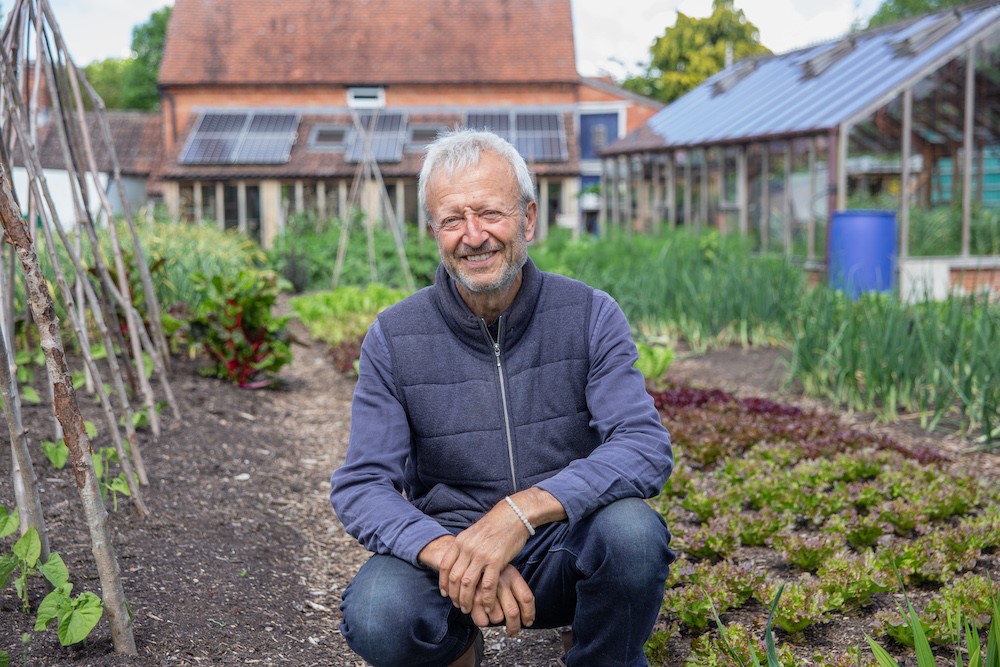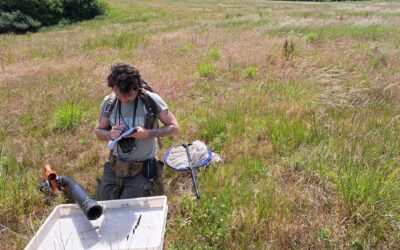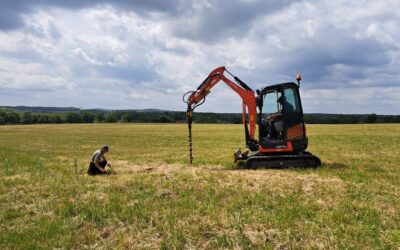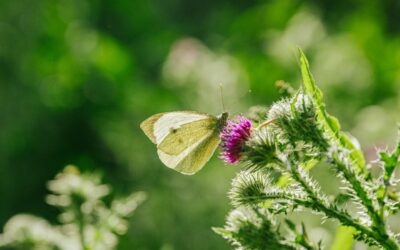This year will see a lot of activity in the market garden at Ewhurst Park. Building on our previous test beds we will be implementing environmentally friendly approaches to cultivation, such as ‘no dig’, permaculture and green composting.
The overarching philosophy is to recognise that our 8-acre market garden is part of a living ecosystem. This means encouraging biodiversity by growing food for different species, not just humans.
To give an example, alongside our vegetable plots, earlier this year we planted a 100-metre hedgerow. Hedgerows offer multiple benefits – they provide food and shelter for birds and small animals; they act as a windbreak to protect plants; and they house insects that prey upon pests like aphids. We’re also installing beetle banks, which, like the hedgerows, attract insects that feed on pests, as well as providing birds and animals with food and shelter.

Charles Dowding, one of the pioneers of no dig organic gardening.
I am especially excited about the no dig farming method. To find out more, we went to Somerset to meet Charles Dowding, who is a pioneer of no dig organic gardening. The essential idea is to recognise that the soil is like a living organism. This is a relatively recent discovery: scientists have learned that the soil contains a complex network of mycelia (masses of branching fungi that are invisible to the eye). This network, which is linked to the roots of plants and trees, is in effect a life support system as it can signal when plants are in need of water and nutrients so that these resources can be redirected. However, as soon as you put a spade in the ground, you break the network, making the soil less healthy. In short, minimal disturbance of the soil leads to the best results.
In practical terms, no dig farming involves placing a layer of compost on top of the soil – as opposed to digging it in – then planting directly into the compost. Charles has collected 10 years of data showing how no dig can yield healthier and more plentiful crops. It’s amazing to watch him at work: Charles treats the soil as if it’s a living being.
There is a huge amount of biodiversity in soil, and the compost on top is teeming with healthy microbes that make their way into our food and our gut microbiome. There is a relationship between the biome in the soil and the biome in our body that we don’t yet fully understand, but there’s something wonderful here about the web of life that is hugely important for our wellbeing.
In addition to no dig, we are adopting the principles of permaculture, which is an approach to land management where we work ‘with’ the land (rather than ‘against’ it), such as not forcing the land to grow plants that wouldn’t flourish naturally and growing plants that happily co-exist rather than compete for nutrients.
It perhaps goes without saying that all our farming will be low input, sustainable and organic, with no pesticides or chemicals used. We’re generating our own compost, mostly from plant and tree trimmings. We will be using rainwater harvesting. and making use of non-combustion machinery, meaning no fossil fuel. We are very excited about all of this and look forward to making our garden a focus for educational events – it will also provide opportunities for local employment and volunteer work.



